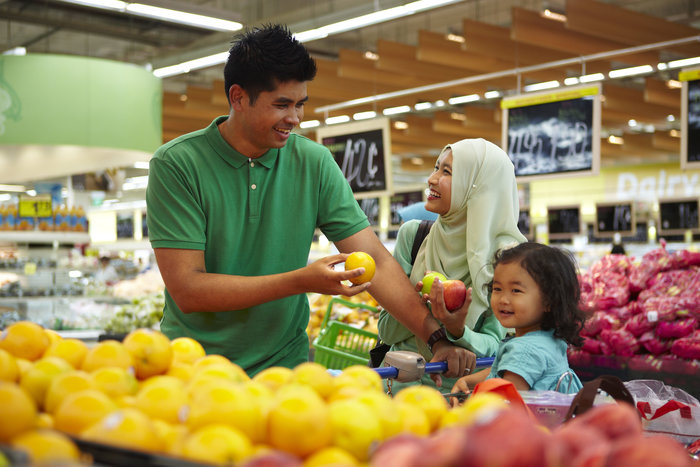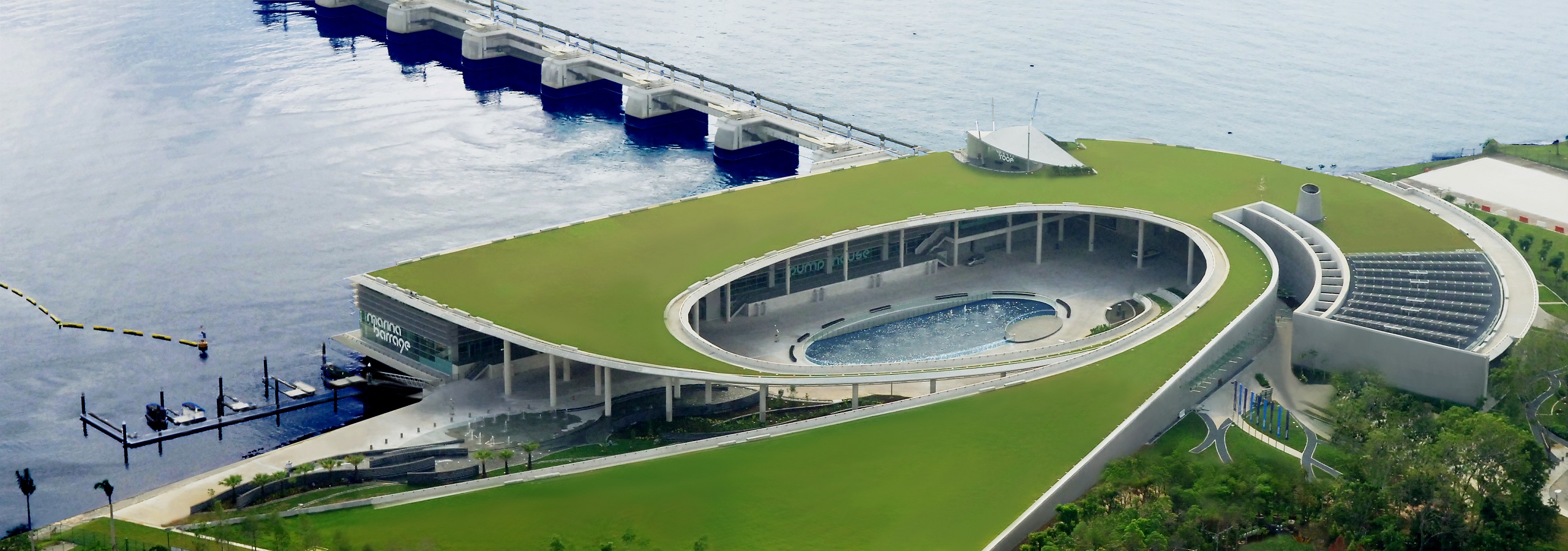Theory Meets Practice
Site Visits

Marina Barrage
Friday, 22 July 2016, 10:00am to 12:00pm
In 1987, after a massive clean-up of the highly polluted Singapore and Kallang Rivers, then Prime Minister of Singapore Lee Kuan Yew said, “In 20 years, it is possible that there could be breakthroughs in technology, both anti-pollution and filtration. Then, we can dam up or put a barrage at the mouth of the marina, the neck that joins the sea, and we will have a huge freshwater lake.”
The opening of Marina Barrage in 2008 was the fulfilment of this vision. Built across the mouth of the Marina Channel, the Marina Barrage creates Singapore’s 15th reservoir, and the first in the heart of the city. With a catchment area of 10,000 hectares, or one-sixth the size of Singapore, the Marina catchment is the island’s largest and most urbanised catchment, augmenting Singapore’s water supply for generations to come.
Marina Barrage comprises nine crest gates that span the 350-metre wide Marina Channel and regulates water levels in Marina Reservoir. On the grass-covered roof of the visitor centre, visitors can view Singapore’s skyline and enjoy activities such as picnics and kite-flying. Marina Barrage is now a much-loved lifestyle attraction and a symbol of Singapore’s continuing efforts to overcome physical constraints with creative and sustainable solutions that make this island a better home for all Singaporeans.
The Barrage also houses the Sustainable Singapore Gallery, which aims to educate visitors on important environmental and water issues through interactive multi-media displays, exhibits and games.

NTUC Fairprice
Friday, 22 July 2016, 2:00pm to 4:30pm
NTUC Social Enterprises, a collective of social enterprises, have been providing relevant, accessible, affordable and quality services to Singaporeans to meet their needs in the past 46 years. We aim to provide a suite of integrated services to meet the pressing social needs of Singaporeans at every stage of their life cycle in the areas of daily essentials, cooked food, financial services, health and eldercare, childcare, and adult education. Collectively, we serve about 2 million customers annually.
We are also now addressing major new social concerns in Singapore, namely, cost of living, ageing, health and social mobility.
NTUC Fairprice, part of the group, was founded in 1973, with a social mission to moderate the cost of living in Singapore. It is today Singapore’s largest retailer serving over half a million shoppers daily, with a network of over 130 outlets. NTUC FairPrice also owns a Fresh Food Distribution Centre and a centralised warehousing and distribution company.

Workshops
Workshop 1
Business Responsibility & Sustainability: Teaching & Researching
Wednesday, 20 July 2016, 10:00am to 12:30pm
Conducted by:
Prof. Jeremy Moon
Velux Professor of Corporate Sustainability, Copenhagen Business School
Discussants:
Dr. Isabel Sim
Senior Research Fellow, Dept of Social Work, NUS; Director (Projects), Centre for Social Development Asia
Prof. Eugene Tan
Associate Professor of Law, Co-Director, Centre for Scholars' Development, Singapore Management University
Synopsis
Outline
Introduction
- Definition of CSR
- What is the current state of CSR development?
- What are the key issues arising from this current state?
- What is the importance of teaching CSR and sustainability?
- What do we know about CSR and sustainability teaching: take-up, motivation for business schools?
- How can CSR and sustainability be taught (methods and resources)?
- What are some of the key challenges faced by educators?
- What is the importance of CSR and sustainability knowledge?
- What is the state of CSR and sustainability research: status, issues, and methods?
- What are the publication opportunities and strategies?
- What are some of the key challenges faced by researchers?
Workshop 2
Evidence-Based CSR: Advocacy & Implementation
Wednesday, 20 July 2016, 10:00am to 12:30pm
Conducted by:
Erinch Sahan
Head of Private Sector Team, Oxfam GB
Discussants:
Jerry Bernas
Programme Director, ASEAN CSR Network
Synopsis
Increasingly, advocacy campaigns are directed towards influencing the behaviour of companies. But are they succeeding? Learn how to make your voice heard by your favourite brands.
In this workshop, Oxfam will share perspectives on advocacy and influencing that can lead to achieving improved corporate responsibility. Participants will be introduced to methods and tools to enable individuals and organisations to use evidence effectively in their advocacy. Such change can encompass improvements in company policies and practices, as well as sector and governance-level change. The workshop will present lessons and perspectives from Oxfam’s Behind the Brands campaign, which has been successful in achieving improved sourcing policies for the world’s 10 largest food and beverage companies. It will also explore other examples that use evidence to achieve change. The workshop will investigate how change can happen through advocacy, and the tools and strategies that can help bring this about.
This workshop is designed for advocacy organisations working to improve the impacts of business on society and the environment across ASEAN, as well as advocates and intrapreneurs working across business and government trying to achieve a step-change in corporate responsibility in the region.
